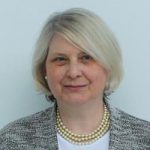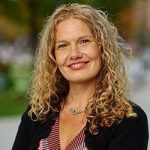A Virtual Event
Wednesday, May 29, 2024
4:00 – 5:00 PM ET
Zoom
Register Here
Join the Center for Innovation in Social Work and Health (CISWH) at Boston University School of Social Work (BUSSW) for a conversation on what matters most to families of children with medical complexity (CMC), alongside strategies to improve their care delivery and mitigate systems-level bias.
Led by Dr. Dennis Kuo, MD, MHS; Bethlyn Houlihan, MSW, MPH; and Cara Coleman, JD, MPH, this second session in the CoIIN Virtual Cafe Series examines how we can reinvigorate human-driven approaches to meet whole child and family needs in systems of care for CMC.
Bethlyn Houlihan, CISWH project director, and Meg Comeau, CISWH senior project director, will weave in key learnings from the 2022 Future of Care for Children with Medical Complexity National Convening and the recently published Collaborative Improvement and Innovation Network to Advance Care for CMC (CMC CoIIN) supplement in Pediatrics.
The CoIIN project is funded by the HRSA Maternal and Child Health Bureau to test and spread promising care delivery strategies and payment models for CMC to improve their quality of life, the well-being of their families, and the cost-effectiveness of their care.
Discussion Materials:
- What Families of Children With Medical Complexity Say They Need: Humanism in Care Delivery Change
- Measuring What Matters to Children With Medical Complexity and Their Families
Discussants:
Associate Professor, University at Buffalo and Chief, Division of General Pediatrics, UBMD
Dennis Z. Kuo, MD, MHS, FAAP is the Purcell Family Distinguished Professor of Pediatrics and Chief of Developmental and Behavioral Pediatrics at the University of Rochester Medical Center/Golisano Children’s Hospital. Dr. Kuo has a longstanding interest in the care of children with disabilities and medical complexity, including systems of care, early childhood, and health equity. His work has focused on defining family-identified needs of children with medical complexity and neurodevelopmental disabilities, and designing the systems of care needed to address the life course needs of children and families.
Senior Project Director, Center for Innovation in Social Work & Health, Boston University
Meg Comeau, MHA is a senior project director at the Center for Innovation in Social Work & Health (CISWH). She is a nationally recognized expert on the impact of Medicaid and federal health care reform for children with special health care needs, medically complex conditions, and disabilities. She brings more than 15 years of health care delivery and financing experience to her role as principal investigator for the Collaborative Improvement and Innovation Network (CoIIN) to Advance Care for Children with Medical Complexity (CMC) and as principal investigator of the Catalyst Center, a project focused on improving insurance coverage and financing of care for children and youth with special health care needs
ProjectDirector and Co-PI, Center for Innovation in Social Work & Health, Boston University
Bethlyn Vergo Houlihan, MSW, MPH, brings a unique blend of skills in her dedication to social justice and health equity, partnering with youth/adults with complex health and social needs, their families, and communities to address systemic inequalities to improve health and well-being. Bethlyn’s projects span across intervention design, implementation, and evaluation, as well as workforce development, interprofessional education, and strategic partnerships to drive sustainable innovation in health and social services delivery. Currently, Bethlyn serves as a Project Director at the Center for Innovation in Social Work & Health at the Boston University School of Social Work, notably as Co-Principal Investigator of The Future of Care for CMC Virtual Café Series. Bethlyn co-edited the recent supplement in Pediatrics (Jan 2024), sharing insights and best practices from the Collaborative Improvement and Innovation Network to Advance Care for Children with Medical Complexity (CMC CoIIN).


